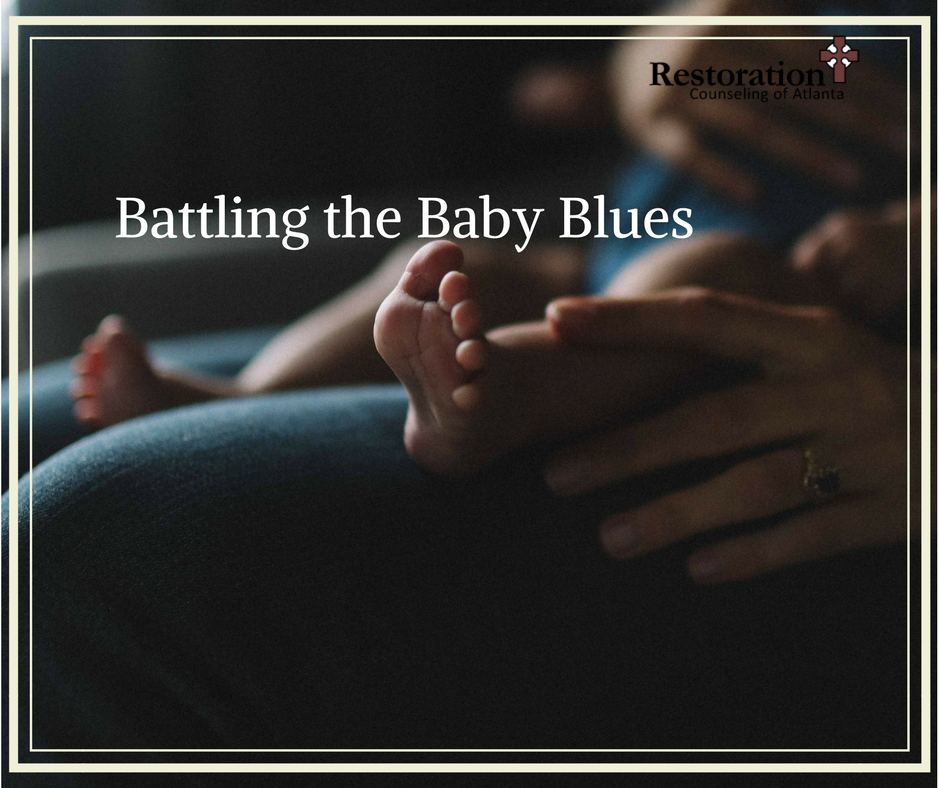Having a baby is often expected to be one of the happiest times of a woman’s life. Nowhere in her game plan is the idea of pregnancy related depression, anxiety or other mood issues. Most women expect the “baby blues;” a short term depression that occurs for about two weeks after giving birth unlike postpartum depression that can occur during or within a year after delivery and lasts longer than that predicted 2 week period. Postpartum Depression is the most common complication of birth. Symptoms can include irritability, anger, lack of interest in the baby, changes in eating and sleeping, trouble concentrating, thoughts of hopelessness and sometimes thoughts of harming the baby or yourself. Thoughts of harm to the baby are very scary and unusual to this mom.
Pregnancy related Anxiety can include extreme worries or fears, including the health and safety of the baby. Some women have panic attacks and might feel shortness of breath, chest pain, dizziness, feeling of losing control, numbness and tingling.
Pregnancy related Obsessive-Compulsive might include repetitive, upsetting and unwanted thoughts or mental images with perhaps the need to repeat certain behaviors over and over to reduce the anxiety caused by those thoughts. These moms find these thoughts very scary and unusual and are not likely to ever act on them.
Postpartum Stress is often caused by a frightening or traumatic childbirth (from the Mom’s perspective). Symptoms might include flashbacks of the event with feelings of anxiety and the need to avoid things related to that event like visiting hospitals or even celebrating the baby’s first birthday.
Postpartum Psychosis might include seeing or hearing voices or images others can’t, feeling very energetic and unable to sleep, believing things that others say are not true and distrusting others around you. This rare illness can be dangerous so it is important to seek help immediately.
It is interesting to know that Postpartum Depression can affect Fathers too. Hormones are not the only factors at play here. Timing isn’t always what you thought either. There can be a period of 3 or even 6 months after giving birth before any of these symptoms show up unexpectedly. For women undiagnosed and untreated, symptoms can last for years after giving birth and be even further compounded by a reoccurring pregnancy.
You may be wondering if you or a loved one is struggling with a Pregnancy related mood issue. A simple online 10 question screen can help you know if consulting with a professional for further support is needed. It is important to understand that this tool is not diagnostic; it is just a screen. A score of 10 or more (5/6 for fathers) indicates the need for further assessment. https://psychology-tools.com/epds/ Being supportive to your loved one is the first step to helping them.
Postpartum Support International (PSI) (www.postpartumsupport.org) is an excellent resource for finding a professional trained in these issues and to learn about support lines, support groups, and reading material. Restoration Counseling has Debbie Turner, LPC who has received training by PSI and is well equipped to meet your needs in this area. If you live in the Atlanta, GA area and are interest in working with a Christian therapist around post partum issues,we would love to help you.

